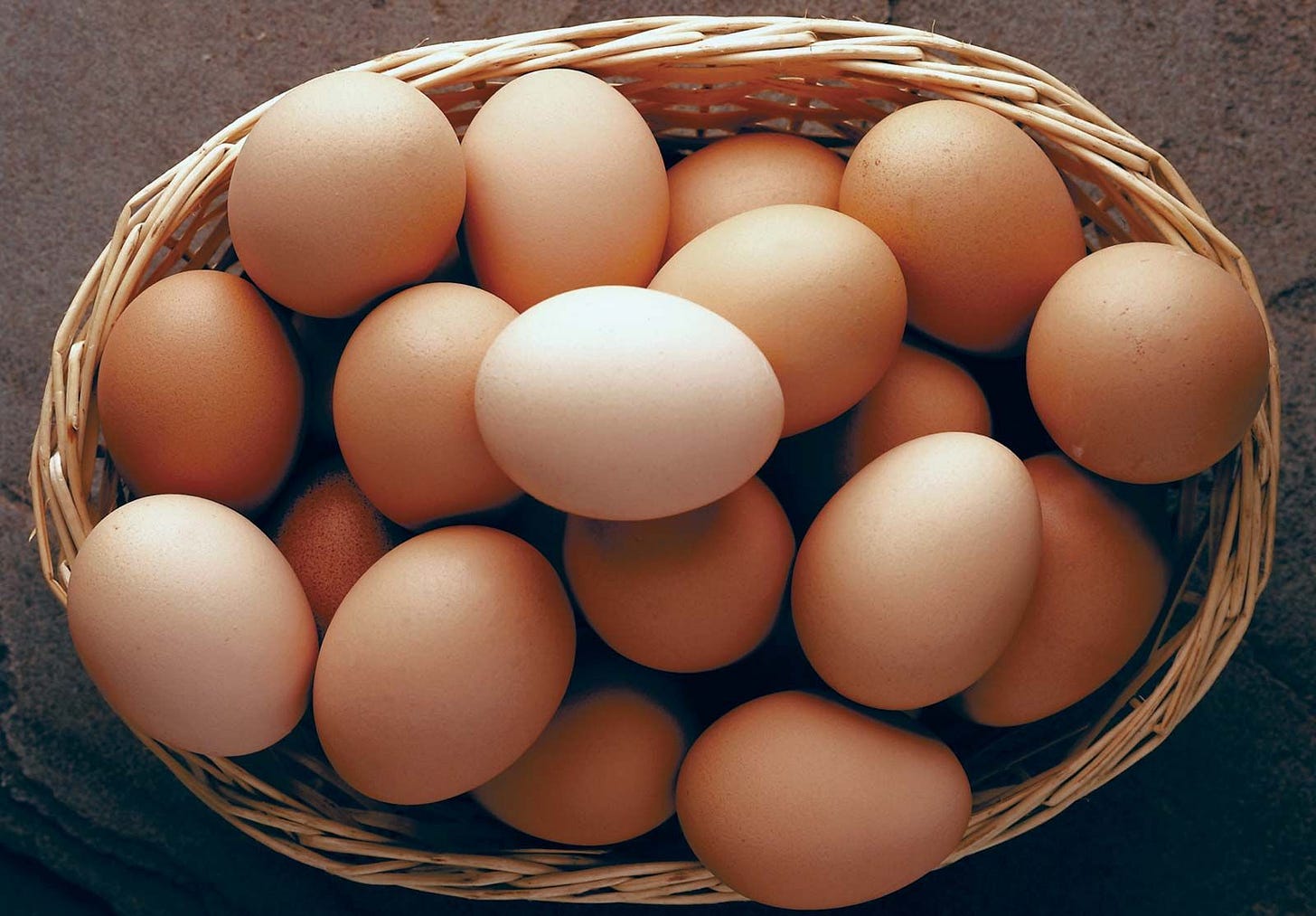Many novice home cooks who are just beginning to learn the rules and the subtleties of home cooking are understandably anxious to know: How does one spot a rotten egg? One would not want to accidentally scramble a bad egg into a morning omelet, or serve a vanilla souffle that might make someone desperately ill.
For those with any familiarity on the matter, the answer is obvious: You will know. No question in the human catalog has so foregone a conclusion. It is roughly akin to asking: “How will I know when I have been punched in the face?” You’ll recognize it, immediately, unhesitatingly. Isolate the independent clause of the interrogative and you’ll have your answer: You’ll know when you’ve cracked a rotten egg because you’ve cracked a rotten egg.
The experience is offensive enough to feel akin to a personal slight. It throws your whole day off. It bothers you on the way to work and during your staff meeting and over your late afternoon coffee break and throughout your evening kilometer on the treadmill. You brood over it as if you were cheated out of something precious, and in a way you were. You never realize how sweet it is to crack a fresh egg until you’ve cracked its putrid obverse. It is an irredeemable binary. You leave the kitchen a different person than when you entered
The old saying is true: You never forget your first. Ask any old cook about it and they’ll be able to recall, with ease, the first time they ever encountered a bad egg. You can watch their eyes go misty with the fog of decades; you can see their bones settle as they drift through the firmament. They can remember it with razor clarity. “I was on vacation with my family in the Ozarks during the summer of 1948.” “I was on leave in Seoul in 1951.” “I had just graduated high school in Fort Worth in 1967.”
The mind ages, but it does not forget: The old-timers remember the first rotten one with a lucidity that rivals a Memorex cassette.
That’s because the rotten egg is a defining moment in a cook’s life. A bad egg makes you question why you ever went into cooking in the first place. It flips the entire notion of cookery on its head: The point of cooking is to get to the product before it rots, to wring nutrients and flavor and experience out of it before the bacteria can. A bad egg makes a mockery out of the cook. It humiliates her: the microbes got to it before she could. It also smells extraordinarily foul and looks putrid and disgusting, which is doubly humiliating, because not only did the microbes get to it, but they tricked you into thinking they didn’t. You feel punked, a punk.
What to do when you find a rotten egg? Treat it like Southern postmasters used to treat abolitionist literature: Get it out of the county as soon as possible. Get it away from the rest of your food; throw it in the garbage, immediately take the garbage out to the supercan (literally, immediately: leave the bacon burning if you must), take the supercan out to the curb, lock your door and pull the shades.
And tip your garbagemen handsomely the next time you see them. A rotten egg can be smelt over the thunderous olfactory din of a garbage truck, like a supernova outshining its host galaxy. When inadvertently exposed to it, garbagemen have been known to turn on each other amid the horror; years of garbage-gathering friendships have been undone in one morning because of a rotten egg.
The next most obvious question is: How do I avoid getting rotten eggs? The answer is you do not, not really, not consciously or deliberately. It’s a sufficiently rare thing to experience, particularly if you have a reliable egg supplier, but ultimately you are always at the mercy of fate and happenstance and coincidence.
In the end a rotten egg is clarifying; it very neatly illustrates the difference between what is fearsomely possible and what is blessedly regular. Every fresh egg is a gift. A cook who has experienced the brutality of a rotten egg can never gaze upon a beautiful orange yolk and firm albumen without feeling a profound sense of gratitude that, this time, he got lucky—though he always trembles slightly knowing that next time, he might not.




Even though modern egg husbandry has improved greatly, and I'd say it is exceedingly, not just 'sufficiently' rare to get a bad egg, it is everything you say it is when you do. So here's another tip and you'll only do it for a while because it's a bit of trouble, but you will be so afraid of another bad egg you will do this for at least a month or two: crack eggs one at a time. If it's good, put it in another bowl and continue; if it's bad, follow instructions above (also wear a hazmat suit and a K95).